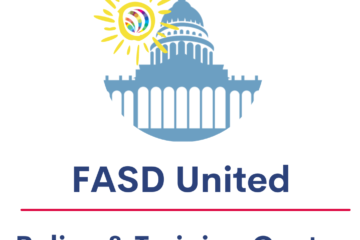Great policy is built around need. We’d like to measure that need and use that information to inform policy.
Students impacted by prenatal exposure to alcohol and fetal alcohol spectrum disorders (FASD) often face many challenges in school. Some students with an FASD may qualify for special education services, but are they the right services, and do they truly meet the students needs?

Despite a prevalence rate of FASD in up to 1 in 20 school-aged children, there is a general lack of recognition and understanding of FASD in our education systems. A survey has been designed to better understand students’ experiences with an FASD, their parents and caregivers, and professionals involved in this field. The information collected from this survey is intended for policymakers, schools, service providers, community organizations, and advocacy groups to better understand and address the needs of students with FASD in the US education system. Please share this survey with Self-Advocates, Educational Professionals and Parents/Caregivers of people with FASD.
This survey was completed through a collaboration between Susan Shepard Carlson and Jenn Wisdahl (FASD United), Sara Messelt and Marissa Lang (Proof Alliance) and Jenn Werden (The Florida Center for Early Childhood). We are grateful to have based this work on an original survey done by Proof Alliance (formerly MOFAS) and several FASD United (formerly NOFAS) affiliates in 2017-18 who came together to advocate for better educational outcomes for students with Fetal Alcohol Spectrum Disorders (FASD). Special thanks to the 2017-18 taskforce members Sara Messelt (MOFAS), Eileen Bisgaard (NOFAS-Colorado), Sr. Suzette Fisher (Double ARC, NOFAS Ohio), Janet Sharkis (Texas Office for the Prevention of Developmental Disabilities), Eileen Bisgaard (NOFAS Colorado), Chris Troutt (The Papillion Center for FASD), and Jennifer Faringer (National Council on Alcoholism and Drug Dependence-Rochester NY) as well as Shauna Feine and Ruth Richardson (MOFAS).

